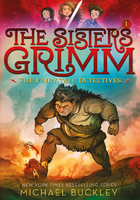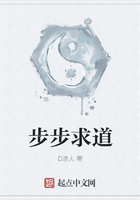So Sai's life had continued in Kalimpong—Lola and Noni, Uncle Potty and Father Booty, the judge and cook … until she met Gyan.
She met Gyan because one day, when Sai was sixteen, Noni found she could no longer teach her physics.
It had been an overhot summer afternoon and they sat on the Mon Ami veranda. All over the mountainside, the heat had reduced the townspeople to a stupor. Tin roofs sizzled, dozens of snakes lay roasting on the stones, and flowers bloomed as plushly and perfectly as on a summer outfit. Uncle Potty sat looking out on the warmth and sheen, the oil brought forth upon his nose, upon the salami, the cheese. A bite of cheese, a bite of salami, a gulp of icy Kingfisher. He leaned back so his face was in the shade and his toes were in the sun, and sighed: all was right with the world. The primary components were balanced, the hot and cold, the liquid and solid, the sun and shade.
Father Booty in his dairy found himself transported to a meditative state by the hum of his cows' chewing. What would yak-milk cheese taste like … ?
Nearby the Afghan princesses were sighing and deciding to eat their chicken cold.
Mrs. Sen, undefeated by the heat, started up the road to Mon Ami, propelled by the latest news from her daughter, Mun Mun, in America: she was to be hired by CNN. She reflected happily on how this would upset Lola. Hah, who did Lola Banerjee think she was? Putting on airs … always showing off about her daughter at the BBC… .
Unsuspecting of the approaching news, Lola was in the garden picking caterpillars off the English broccoli. The caterpillars were mottled green and white, with fake blue eyes, ridiculous fat feet, a tail, and an elephant nose. Magnificent creatures, she thought, studying one closely, but then she threw it to a waiting bird that pecked and a green stuffing squiggled out of the caterpillar like toothpaste from a punctured tube.
On the Mon Ami veranda, Noni and Sai sat before an open text book: neutrons … and protons … electrons… . So if—then—???
They were yet unable to grasp the question but were taunted by the sight, beyond the veranda, of a perfect sunlit illustration of the answer: speck insects suspended in a pod within which they jigged tirelessly, bound by a spell that could not be undone.
Noni felt a sudden exhaustion come over her; the answer seemed attainable via miracle not science. They put the book aside when the baker arrived at Mon Ami as he did each afternoon, lifting his trunk from his head and unlatching it. Outside the trunk was scuffed; inside it glowed like a treasure chest, with Swiss rolls, queen cakes, and, taught to him by missionaries on the hillside, peanut butter cookies evocative of, the ladies thought, cartoon America: gosh, golly, gee whiz, jeepers creepers.
They picked out pink and yellow queen cakes and began to chat.
"So, Sai, how old are you now? Fifteen?"
"Sixteen."
It was hard to tell, Noni thought. Sai looked far older in some ways, far younger in some.
Younger, no doubt, because she'd lived such a sheltered life and older, no doubt, because she spent all her time with retired people. She might always look like this, girlish even when she was old, old even when she was young. Noni looked her over critically. Sai was wearing khaki pants and a T-Shirt that said "Free Tibet." Her feet were bare and she wore her short hair in two untidy braids ending just before her shoulders. Noni and Lola had recently discussed how bad it was for Sai to continue to grow up like this: "She won't pick up social skills … nobody her own age … house full of men… ."
"Don't you find it difficult living like that with your grandfather?"
"The cook talks so much," said Sai, "that I don't mind."
The way she'd been abandoned to the cook for years… . If it wasn't for Lola and herself, Noni thought, Sai would have long ago fallen to the level of the servant class herself.
"What does he talk about?"
"Oh, stories about his village, how his wife died, his court case with his brother… . I hope Biju makes a lot of money," reflected Sai, "they are the poorest family in the village. Their house is still made of mud with a thatch roof."
Noni didn't think this was suitable information for the cook to share. It was important to draw the lines properly between classes or it harmed everyone on both sides of the great divide. Servants got all sorts of ideas, and then when they realized the world wasn't going to give them and their children what it gave to others, they got angry and resentful. Lola and Noni constantly had to discourage their maid, Kesang, from divulging personal information, but it was hard, Noni acknowledged, to keep it that way. Before one knew it one could slide into areas of the heart that should be referred to only between social equals. She thought of an episode not so long ago when the sisters had been too fascinated to stop their maid telling them of her romance with the milkman:
"I liked him so much," Kesang said. "I am a Sherpa, he is a Rai, but I lied and told my parents he was a Bhutia so they agreed to let us marry. It was a very nice wedding. His people, you have to give so much, pork, money, this and that, whatever they ask for you have to give, but we didn't have a wedding like that. He looked after my parents when they were ill and right from the beginning we made a vow that he wouldn't leave me and that I wouldn't leave him. Both things. Neither of us will leave each other. He will never die and leave me and I will never die and leave him. We made this vow. From before we got married we said this."
And she began to cry. Kesang with her crazy brown teeth going in different directions and her shabby stained clothes and funny top-knot perched precariously on the nob of her head. Kesang, whom they had taken in untrained as a kindness and taught to make an Indonesian saté with peanut butter and soy sauce, a sweet-sour with ketchup and vinegar, and a Hungarian goulash with tomatoes and curd. Her love had shocked the sisters. Lola had always professed that servants didn't experience love in the same manner as people like themselves—"Their entire structure of relationships is different, it's economic, practical—far more sensible, I'm sure, if only one could manage it oneself." Even Lola was forced to wonder now if it were she who had never experienced the real thing; never had she and Joydeep had such a conversation of faith over the plunge—it wasn't rational, so they hadn't. But therefore might they not have had the love? She buried the thought.
Noni had never had love at all.
She had never sat in a hushed room and talked about such things as might make your soul tremble like a candle. She had never launched herself coquettishly at Calcutta parties, sari wrapped tightly over her hips, ice tonkling madly in her lime soda. She had never flown the brief glorious flag of romance, bright red, over her existence, not even as an episode of theater, a bit of pretense to raise her above her life. What did she have? Not even terrible hatreds; not even bitterness, grief. Merely irritations over small things: the way someone would not blow her nose but went sur-sur-sur in the library, laddering up the snot again and again.
She found, to her shock, that she had actually felt jealous of Kesang. The lines had blurred, luck had been misassigned.
And who would love Sai?
When Sai had first arrived, Noni had seen herself in her, in Sai's shyness. This was what came of committing a sensitive creature to a mean-spirited educational system, she thought. Noni, too, had been sent to such a school—you could only remain unsnared by going underground, remaining quiet when asked questions, expressing no opinion, hoping to be invisible—or they got you, ruined you.
Noni had recovered her confidence only when it was too late. Life had passed her by and in those days things had to happen fast for a girl, or they didn't happen at all.
"Don't you want to meet people your own age?" she asked Sai.
But Sai was shy around her peers. Of one thing, though, she was sure: "I want to travel," she confessed.
Books were making her restless. She was beginning to read, faster, more, until she was inside the narrative and the narrative inside her, the pages going by so fast, her heart in her chest—she couldn't stop. In this way she had read To Kill a Mockingbird, Cider with Rosie, and Life with Father from the Gymkhana Club library. And pictures of the chocolaty Amazon, of stark Patagonia in the National Geographics, a transparent butterfly snail in the sea, even of an old Japanese house slumbering in the snow… .—She found they affected her so much she could often hardly read the accompanying words—the feeling they created was so exquisite, the desire so painful. She remembered her parents, her father's hope of space travel. She studied the photographs taken via satellite of a storm blowing a red cloud off the sun's surface, felt a terrible desire for the father she did not know, and imagined that she, too, must surely have within her the same urge for something beyond the ordinary.
Cho Oyu and the judge's habits seemed curtailments to her then.
"Now and again, I wish I lived by the sea," sighed Noni. "At least the waves are never still."
A long while ago, when she was a young woman, she had gone to Digha and learned what it was to be lifted by the mysterious ocean. She stared out at the mountains, at the perfection of their stillness.
"The Himalayas were once underwater," Sai said. She knew this from her reading. "There are ammonite fossils on Mt. Everest."
Noni and Sai picked up the physics book again.
Then they put it down again.
"Listen to me," Noni told Sai, "if you get a chance in life, take it. Look at me, I should have thought about the future when I was young. Instead, only when it was too late did I realize what I should have done long ago. I used to dream about becoming an archaeologist. I'd go to the British Council and look at the books on King Tutankhamen… . But my parents were not the kind to understand, you know, my father was the old-fashioned type, the kind of man brought up and educated only to give orders… . You must do it on your own, Sai."
Once more they tried physics, but Noni couldn't find an answer to the problem.
"I am afraid I have exhausted my abilities in science and mathematics. Sai will require a tutor more qualified in these areas," said the note she sent home with Sai for the judge.
"Bloody irresponsible woman," said the judge, grumpy because the heat reminded him of his nationality. Later that evening he dictated to Sai a letter for the principal of the local college.
"If there is a teacher or an older student who provides tutoring, please let them know that we are looking for a mathematics and science instructor."















